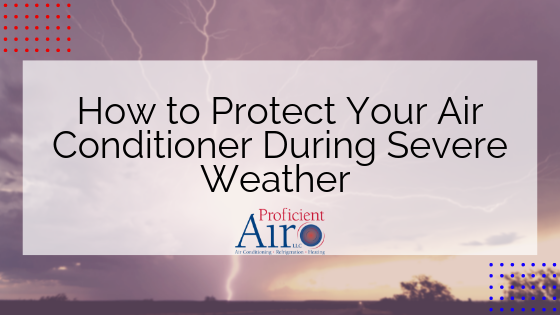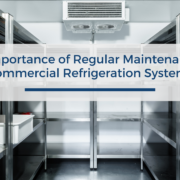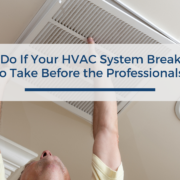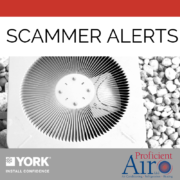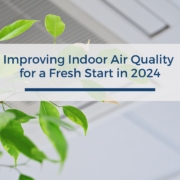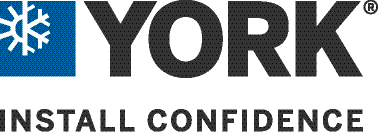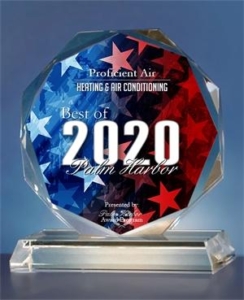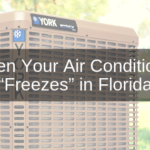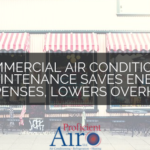How to Protect Your Air Conditioner During Severe Weather
The weather forecast for our little slice of paradise includes pretty good chances of rain more often than not over the next few weeks. It’s not like we need it, considering we’ve endured so much rain this summer, causing flooding has been a serious concern for residents in low-lying areas, especially in Pasco County.
We are smack-dab in the middle of hurricane season, and with the crazy weather patterns seen across the world, we can’t be too careful when it comes to protecting our families and our air conditioners when excess rain, severe tropical storms, and hurricanes threaten.
Fortunately for us, it has been an unusually calm hurricane season, thus far. However, USA Today reports that the kind of “calm” we’ve experienced to this point could translate to severe weather ahead. It’s not likely based on current predictions, though.
“The last time we went from July 15 through Aug. 19 with no named storms in the Atlantic was 1982, according to Colorado State University meteorologist Phil Klotzbach.”
Historically, the period between August 20 and September 11, typically sees more named storms and an increase in severe weather. Since we do live in what’s known as “the lightning capital of the world,” it’s important to understand the impact of inclement weather on your central air conditioner.
Torrential Rain
A central air conditioner operates using an indoor air handler and an outdoor compressor. Even though the air compressor drives the primary performance of the a/c unit, the rain will not affect its ability to operate properly.
Considering the elevated levels of humidity on the Gulf Coast, it is safe to run your air conditioner while it’s raining to reduce indoor humidity and improve the overall air quality.
Flooding
If you live in a flood-prone area, and your indoor air handler and/or outdoor compressor has sat in the water a foot high or more, there could definitely be significant damage to your air conditioning system.
When an unfortunate flooding event occurs, there crucial steps to take to stay safe and minimize further damage to your air conditioner:
- Turn off or disconnect all electricity to your air conditioner. Most people turn off the main breaker. If you are uncertain about how to go about this, call Proficient Air and an expert service technician can help.
- As soon as the water recedes, or it’s removed with a shop-vac or by a water remediation company, let the system dry-out. If debris remains after a flood, clear it from the areas of the air conditioning components.
- Contact a professional air conditioning contractor to survey the damage with a full inspection to ensure the unit is safe for operation.
Tropical & Thunderstorms
Where there’s thunder, there’s lightning, and lightning and electrical surges can cause extensive damage to air conditioners, as most any home appliance.
There are steps you can take to protect your air conditioning system during electrical storms that can spare you from costly air conditioning repairs, or worse, the entire replacement of your air conditioning system.
- Add protection by installing a surge protector for the compressor unit outside your home. A surge protector will block the elevated electricity levels from reaching the compressor, should the air conditioner absorb a direct lightning strike.
- Upgrade your thermostat if it’s an older, mercury model. With today’s advanced technology, digital and smart thermostats can actually protect your compressor if a lightning strike or power surge disrupt its operation. An abrupt restart when power is restored can cause excessive wear and tear on the compressor unit. A contemporary thermostat will time delay activation of the compressor for several minutes to minimize strain on the system. If cost is a concern, think about the cost of a brand new system replacement!
Hail
We don’t experience too much hail here on the West coast of Florida, but it doesn’t hurt to understand what the “hail” to do, just in case! [Pun intended].
Small hailstones usually cause minimal, if any damage. When hail falls in larger ice pellets, it can damage roofs, cars, and air condenser units. When surveying damage, carefully examine the vents, or fins, to make sure air is not restricted in any way. Even though the components are “protected” by an outer metal housing with an added layer of protection inside, metal fins can be bent and dented by hailstones.
If you do detect damage, it is best to schedule a professional inspection by a trusted air conditioning company.
Hurricanes
Hurricanes pack a tremendous punch, no matter what category and they are capable of all of the factors listed above, along with powerful, dangerous winds and tornadoes. Before you evacuate your home, or even if you plan to ride out the storm, there are some ways to safeguard your central air conditioning unit.
- Turn the air conditioner off at the breaker box. Extreme tropical storms and hurricanes commonly result in power outages, and an abrupt restart when power is restored can cause excessive wear and tear on the compressor unit. A digital or smart thermostat will time delay activation of the compressor for several minutes to minimize strain on the system. Secure the outdoor compressor with hurricane-strength straps to keep it from becoming a dangerous projectile in extreme winds or heavy floods.
- Cover the outdoor compressor with plywood and a tarp to help protect the metal casing and its inhabitants from flying debris. But ALWAYS REMEMBER TO REMOVE THE TARP AND PLYWOOD as soon as the coast is clear and before you restart the air conditioning system, to prevent mechanical problems.
In spite of meteorologists’ best efforts, weather can be unpredictable, and weather can negatively impact your home and air conditioning system. Being prepared when storms bubble-up and nasty weather ensues can help protect your most valuable assets.
If the unfortunate occurs and your air conditioner requires replacement or repairs, Proficient Air proudly services and repairs all brands, makes and models of equipment. Our expert technicians are highly-qualified to exercise best practices in air conditioning repair and replacement to accurately assess and diagnose mechanical issues. Once problems are identified, they offer the appropriate solutions to resolve the issues.
If your air conditioner is under warranty, Proficient Air honors warranty repairs on most equipment, whether we installed it or not. Warranties may only cover parts, however, and are subject to a warranty fee. Labor is an additional charge with many warranty repairs. Unsure of what your warranty covers? Call Proficient Air and they can find out for you.
Proficient Air in Palm Harbor offers a variety of high-quality maintenance contracts, specifically tailored to your needs and budget. Protect your HVAC investment and keep your business, home and family cool, comfortable and energy-efficient all summer long, with Proficient Air. Call us today: 727.386.2732
Source: USA Today
###

